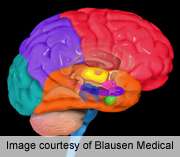(HealthDay)—The U.S. Preventive Services Task Force (USPSTF) has found that the evidence is insufficient to assess the balance of benefits and harms of cognitive impairment screening for older adults without signs or symptoms of cognitive impairment. This draft recommendation statement is based on an evidence review published in the Nov. 5 issue of the Annals of Internal Medicine.
Noting that some screening tools have sufficiently high sensitivity and specificity to be clinically useful in identifying dementia, researchers from the USPSTF reviewed the literature to assess the benefits and harms of routine screening of all older adults for cognitive impairment. The draft recommendation statement is applicable to adults older than 65 years without signs or symptoms of cognitive impairment.
The researchers found that the evidence was insufficient to evaluate the balance of benefits and harms of cognitive impairment screening. The draft recommendation statement is available for comment from Nov. 5 to Dec. 2, 2013.
"Although the benefits and harms of what we can offer patients through routine screening are unclear right now, clinicians should remain alert to early signs or symptoms of cognitive impairment and evaluate their patients as appropriate," Task Force co-vice chair Albert Siu, M.D., M.S.P.H., said in a statement.
More information:
Draft Recommendation Statement
Comment on Recommendations
Background Review
Journal information: Annals of Internal Medicine
Copyright © 2013 HealthDay. All rights reserved.





















